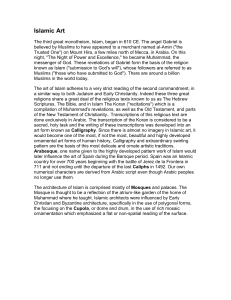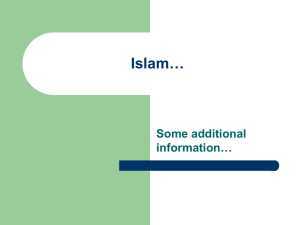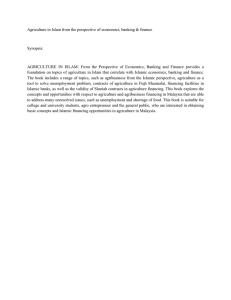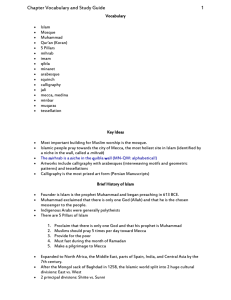Silvers, RLG 204 Islamic Rel. Trad. 2015-16
advertisement
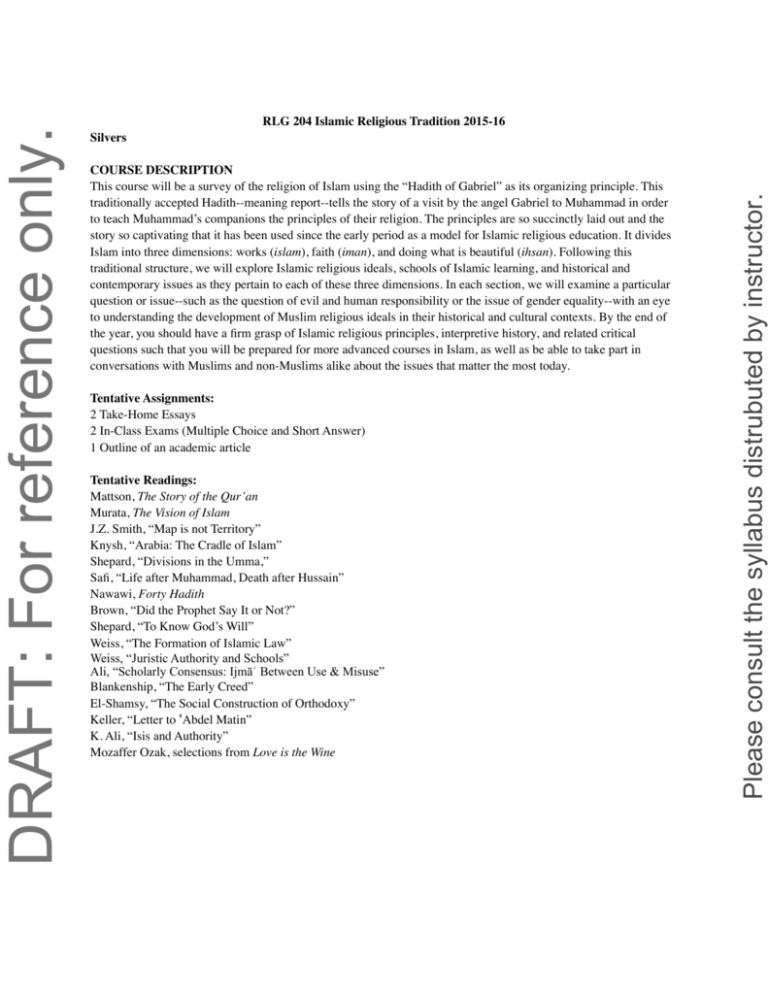
COURSE DESCRIPTION This course will be a survey of the religion of Islam using the “Hadith of Gabriel” as its organizing principle. This traditionally accepted Hadith--meaning report--tells the story of a visit by the angel Gabriel to Muhammad in order to teach Muhammad’s companions the principles of their religion. The principles are so succinctly laid out and the story so captivating that it has been used since the early period as a model for Islamic religious education. It divides Islam into three dimensions: works (islam), faith (iman), and doing what is beautiful (ihsan). Following this traditional structure, we will explore Islamic religious ideals, schools of Islamic learning, and historical and contemporary issues as they pertain to each of these three dimensions. In each section, we will examine a particular question or issue--such as the question of evil and human responsibility or the issue of gender equality--with an eye to understanding the development of Muslim religious ideals in their historical and cultural contexts. By the end of the year, you should have a firm grasp of Islamic religious principles, interpretive history, and related critical questions such that you will be prepared for more advanced courses in Islam, as well as be able to take part in conversations with Muslims and non-Muslims alike about the issues that matter the most today. Tentative Assignments: 2 Take-Home Essays 2 In-Class Exams (Multiple Choice and Short Answer) 1 Outline of an academic article Tentative Readings: Mattson, The Story of the Qur’an Murata, The Vision of Islam J.Z. Smith, “Map is not Territory” Knysh, “Arabia: The Cradle of Islam” Shepard, “Divisions in the Umma,” Safi, “Life after Muhammad, Death after Hussain” Nawawi, Forty Hadith Brown, “Did the Prophet Say It or Not?” Shepard, “To Know God’s Will” Weiss, “The Formation of Islamic Law” Weiss, “Juristic Authority and Schools” Ali, “Scholarly Consensus: Ijmāʿ Between Use & Misuse” Blankenship, “The Early Creed” El-Shamsy, “The Social Construction of Orthodoxy” Keller, “Letter to ʿAbdel Matin” K. Ali, “Isis and Authority” Mozaffer Ozak, selections from Love is the Wine Please consult the syllabus distrubuted by instructor. DRAFT: For reference only. RLG 204 Islamic Religious Tradition 2015-16 Silvers
